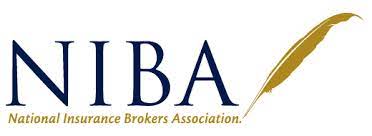ICA welcomes the abolishing of Fire Services Levy in Tasmania
The Insurance Council of Australia (ICA) has welcomed the Tasmanian Government's decision to abolish the Fire Services Levy (FSL) charged on business insurance policies.
The Levy has historically been used to fund fire and emergency services in Tasmania, however, its abolishment has long been called for by insurers and the broader business community.
This change now leaves New South Wales as the only state using a tax levied on insurance customers to fund emergency services.
The New South Wales Emergency Services Levy (ESL) currently adds around 18% to home insurance premiums and up to 40% to business cover.
According to the ICA, the New South Wales ESL is forecast to collect $1.4 billion in revenue from insurance customers in 2023-24 at a time when worsening and more frequent extreme weather events are contributing to significant increases in premiums.
New South Wales insurance customers are paying nearly three times the amount of state taxes than Victorian insurance customers, contributing to an estimated 13% of New South Wales households being uninsured – double the rate in Victoria.
Earlier in the year, the ICA launched a campaign called ‘Find a fairer way’, which called for the removal of the NSW Emergency Services Levy (ESL) and for the NSW Government to find a more equitable way to fund emergency services.
NIBA has welcomed the release of ICA’s campaign.
“The abolition of the ESL would ease the pressure on NSW insurance customers and enable them to have access to more affordable insurance,” said Philip Kewin, NIBA CEO.
The ‘Find a fairer way’ campaign has shown that almost two-thirds of NSW voters (65%) support removing the ESL and replacing it with an alternative funding model for emergency services.
Coming back to the update in Tasmania, Kylie Macfarlane, Acting CEO of the ICA welcomed the abolishment of the FSL as a step forward for communities and businesses across Tasmania.
“The responsibility for funding these vital services will now be shared by the entire community, not through an impost on businesses who purchase insurance,” said Ms Macfarlane.
“This change will undoubtedly lead to improved insurance affordability and will encourage more businesses to insure their assets at a time when appropriate cover is needed more than ever.
“It is now incumbent upon the New South Wales Government to follow the lead of the Tasmanian Government and reform the ESL to find a fairer way to fund emergency services in that State.”
